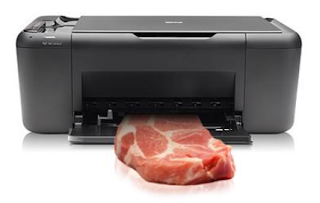Jet Eat was chosen out of dozens of successful food technology startups participating in the initiative and was one of three final winners who received a €60,000 zero-equity prize.
This innovative Israeli startup is the first company in the world to develop 3D printing technology specifically to address major problems facing the food industry. Established in 2018, Jet-Eat aims to help reduce food waste, contribute to a more sustainable food production system, and provide vegans, vegetarians, and flexitarians with healthy, natural and sustainable alternatives to meat without comprising their culinary experience.
The cattle beef industry is a major cause of adverse environmental impact and represents a massive economic potential for disruption. Incorporating 3D printing technology into the quest to find an alternative to meat, and especially beef, could fundamentally change this reality and help build a more sustainable future while opening new opportunities in high-end plant-based meat.
The Israeli startup was one of some 40 food startups, poised to change the world’s food system, taking part in the EIT Food Accelerator Network. The Technion-Israel Institute of Technology. the Swiss Federal Polytechnic School ETH Zurich and the Technical University of Munich (TUM) were chosen to run the program.
At the Technion, 10 startups took part in the four-month accelerator, led by the Department of Biotechnology and Food Engineering. They received mentoring by leading academics at the university as well as food industry professionals from the Strauss Company.


